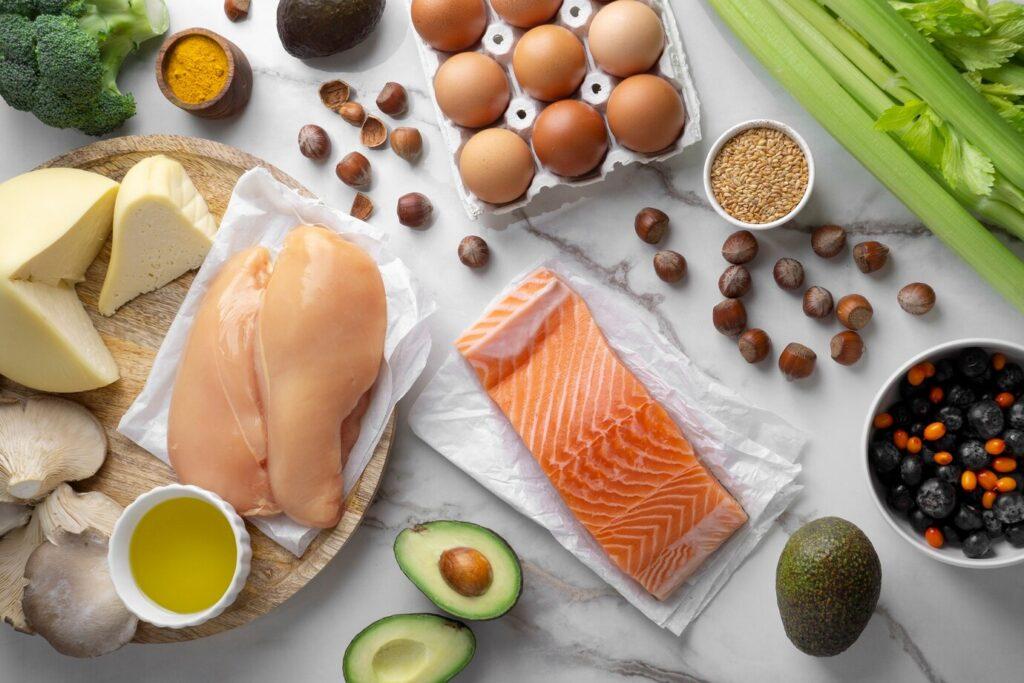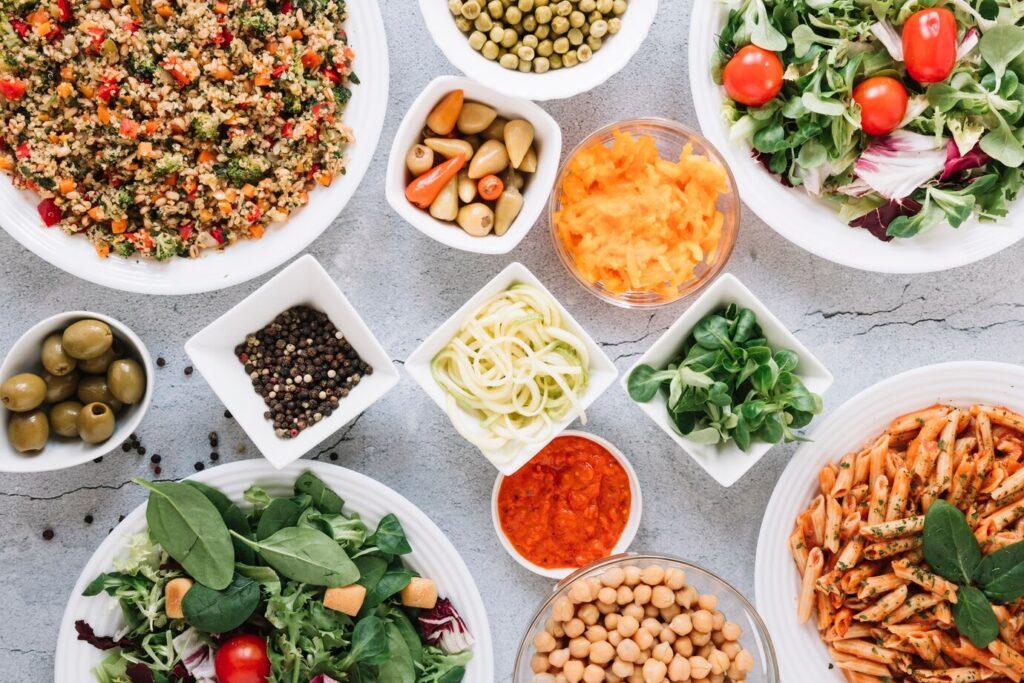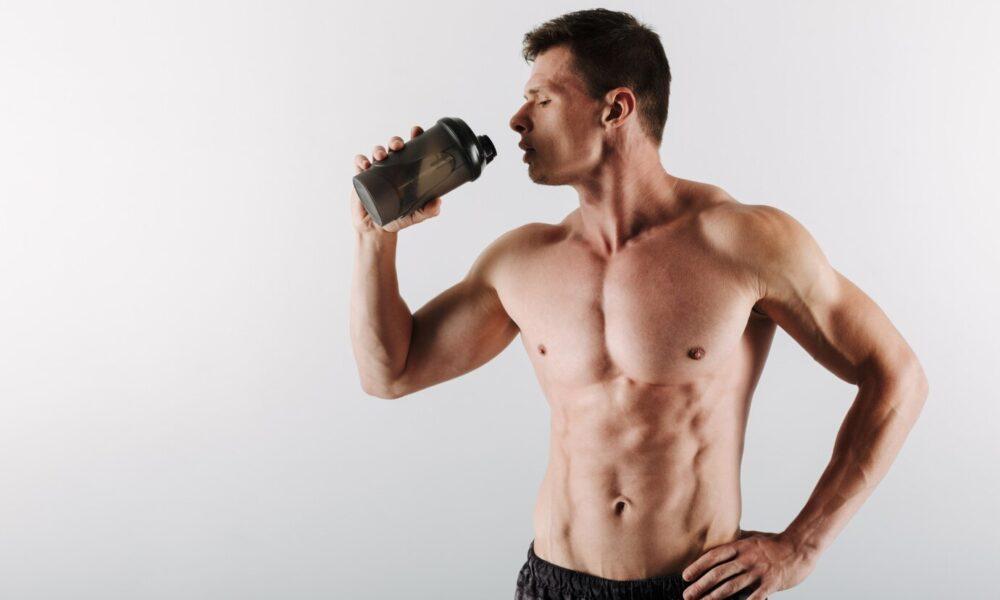Top Fat Loss Diets Revealed: How to Shed Pounds Fast
Top Fat Loss Diets Revealed: How to Shed Pounds Fast
With spring break approaching, now is the perfect time to focus on shedding unwanted fat and achieving a leaner physique. Whether you’re aiming for beach-ready abs or simply want to boost your confidence, a strategic approach combining targeted nutrition and efficient exercise can deliver impressive results. Let’s explore the most effective methods to transform your body quickly and sustainably.
Best Diets for Rapid Fat Loss
When it comes to shedding fat fast, your diet is the most important factor. Here are some of the best diet strategies to help you burn fat quickly:
1. Ketogenic Diet
The ketogenic diet represents a fundamental shift in how your body produces energy. By drastically reducing carbohydrates (typically under 50g daily) and increasing fat intake to 70-75% of total calories, you force your body to enter ketosis—a metabolic state where your liver converts fat into ketone bodies that fuel your brain and body instead of glucose.
Macronutrient Breakdown:
- Fat: 70-75% of daily calories
- Protein: 20-25% of daily calories
- Carbohydrates: 5-10% of daily calories (usually 20-50g net carbs)
Foods to Embrace:
- Healthy fats: Avocados, extra virgin olive oil, MCT oil, grass-fed butter
- Protein sources: Fatty fish (salmon, mackerel), pasture-raised eggs, grass-fed meats
- Low-carb vegetables: Spinach, kale, broccoli, cauliflower, zucchini
- Nuts and seeds: Macadamias, almonds, walnuts, flaxseeds (in moderation)
Foods to Eliminate:
- All grain products: Bread, pasta, rice, cereals, oats
- Starchy vegetables: Potatoes, corn, peas
- Sugars: Table sugar, honey, maple syrup, agave
- High-sugar fruits: Bananas, grapes, mangoes
Physiological Benefits:
- Insulin levels drop significantly, unlocking stored fat for energy
- Ketones suppress ghrelin (hunger hormone) and increase CCK (satiety hormone)
- Water weight drops rapidly in the first week as glycogen stores deplete
- Brain fog typically subsides after the “keto flu” adaptation period (3-7 days)
2. Intermittent Fasting
Intermittent fasting isn’t about what you eat but when you eat. This approach leverages your body’s natural hormonal fluctuations to maximize fat burning during fasting periods while maintaining muscle during feeding windows.
Most Effective Protocols:
- 16:8 Method: Fast for 16 hours daily (typically overnight and morning), then consume all calories within an 8-hour window (e.g., 12pm-8pm). This approach works well for beginners and can be implemented daily.
- 5:2 Protocol: Eat normally for five days of the week while restricting calories to 500-600 on two non-consecutive days. This creates a significant weekly caloric deficit without daily restriction.
- Alternate-Day Fasting: Alternate between normal eating days and either complete fasts or very low-calorie days (500-600 calories). This more aggressive approach produces faster results but may be harder to sustain.
Hormonal Benefits:
- Insulin sensitivity improves dramatically during fasting periods
- Human Growth Hormone (HGH) increases up to 5x normal levels, preserving muscle
- Norepinephrine rises, signaling fat cells to release stored energy
- Autophagy (cellular cleanup process) accelerates, reducing inflammation
Implementation Tips:
- Begin with 12-hour fasts and gradually extend fasting periods
- Black coffee, unsweetened tea, and water are permitted during fasts
- Schedule workouts toward the end of fasting periods for maximum fat oxidation
3. High-Protein, Low-Carb Diet
This approach prioritizes protein intake while moderately restricting carbohydrates, creating an ideal environment for preserving lean muscle during fat-loss phases.
Optimal Macronutrient Targets:
- Protein: 1.0-1.2g per pound of body weight (around 30-35% of calories)
- Fat: 20-30% of total calories
- Carbohydrates: Remaining calories (typically 20-30%)
Premium Protein Sources:
- Animal proteins: Grass-fed beef, wild-caught fish, pasture-raised poultry and eggs
- Dairy proteins: Greek yogurt, cottage cheese, whey protein isolate
- Plant proteins: Hemp seeds, tempeh, nutritional yeast (for plant-based athletes)
Carbohydrates to Minimize:
- Refined grains: White bread, pasta, cereals
- Added sugars: Candy, baked goods, sweetened beverages
- Ultra-processed foods: Most packaged snacks, fast food
Metabolic Advantages:
- Higher thermic effect of feeding (TEF)—your body burns 20-30% of protein calories during digestion
- Elevated glucagon levels, which counteract insulin’s fat-storage effects
- Increased satiety through multiple pathways (CCK, PYY, and GLP-1 hormones)
- Preserved resting metabolic rate despite caloric restriction

4. Mediterranean Diet
This traditional eating pattern focuses on whole foods, plant-based nutrition, and healthy fats—delivering sustainable fat loss with exceptional health benefits.
Core Nutritional Components:
- Monounsaturated fats: Extra virgin olive oil (primary fat source, 3-4 tablespoons daily)
- Omega-3 rich seafood: Fish 2-3 times weekly (sardines, mackerel, salmon)
- Abundant produce: 7-10 servings of vegetables and fruits daily
- Whole grains: Moderate portions of unrefined grains (farro, bulgur, whole grain bread)
- Lean proteins: Beans, lentils, and modest amounts of poultry and eggs
The Mediterranean Lifestyle Element:
- Meals are social events, eaten slowly and mindfully
- Regular physical activity is incorporated naturally into daily life
- Stress management is prioritized through community connection
Long-Term Benefits:
- Reduced systemic inflammation via polyphenols and omega-3 fatty acids
- Improved gut microbiome diversity-supporting metabolic health
- Enhanced insulin sensitivity despite moderate carbohydrate intake
- Sustainable fat loss without severe restriction or hunger
Implementation Strategy: Begin by replacing processed oils with olive oil, increasing vegetable intake, and incorporating fatty fish weekly while gradually reducing processed foods, red meat, and refined carbohydrates.

Workout Strategies for Maximum Fat Burning
The right exercise selection dramatically accelerates your transformation while preserving lean muscle:
1. High-Intensity Interval Training (HIIT)
Nothing burns fat more efficiently than properly executed HIIT workouts. HIIT triggers excess post-exercise oxygen consumption (EPOC), keeping your metabolism elevated for up to 24 hours after training.
Sample Workout:
- Sprint: 30 seconds maximum effort / 30 seconds recovery (15 minutes)
- Jump Squats: 40 seconds work / 20 seconds rest (5 rounds)
- Burpees: 30 seconds all-out / 30 seconds recovery (5 rounds)
Results: Accelerated fat burning, preserved muscle mass, improved cardiovascular fitness
2. Strategic Core Training
Develop a definition in your midsection with these targeted exercises:
Most Effective Moves:
- Hanging Leg Raises (complete abdominal development)
- Weighted Russian Twists (oblique engagement)
- Bicycle Crunches (upper and lower abs)
- Progressive Planks (deep core stability)
- Ab Wheel Rollouts (core stability under tension)
Benefits: Enhanced definition, improved posture, increased functional strength, injury prevention

3. Optimized Cardiovascular Training
Strategic cardio amplifies your caloric expenditure while improving heart health.
Best Selections:
- Sprint Training (activates fast-twitch muscle fibers)
- Cycling Intervals (high-calorie burn with joint protection)
- Jump Rope Sessions (coordination plus fat burning)
- Rowing (engages 86% of your muscles simultaneously)
- Incline Walking (intensifies workload efficiently)
Outcomes: Substantial calorie burn, improved endurance, optimized cardiovascular function.
4. Resistance Training for Metabolic Power
Strength training creates the hormonal environment necessary for sustained fat loss.
Most Effective Movements:
- Deadlifts (activates posterior chain muscles)
- Squats (triggers growth hormone release)
- Bench Press (develops upper body while elevating metabolism)
- Weighted Pull-Ups (builds back definition)
- Overhead Press (strengthens shoulders while engaging core)
Results: Elevated metabolic rate, enhanced muscle tone, functional strength development
Advanced Fat-Loss Nutrition Strategies
Implement these dietary tactics to accelerate your progress and lose fat:
- Maintain a Precise Caloric Deficit Create a 500-calorie daily deficit for sustainable fat loss without metabolic slowdown.
- Incorporate Thermogenic Foods Green tea, chili peppers, ginger, and coffee naturally increase metabolic rate.
- Prioritize Protein Intake Aim for 1.0-1.2 grams per pound of bodyweight daily to preserve muscle and increase satiety.
- Eliminate Liquid Calories Replace sugary drinks and alcohol with water, black coffee, and herbal teas.
- Increase Fiber Consumption High-fiber foods like vegetables, beans, and whole grains control hunger and stabilize blood sugar.

Frequently Asked Questions
How quickly can I expect to see fat loss results?
Most people start to notice changes within 2-3 weeks of consistent diet and exercise. Significant visual changes typically occur after 4-6 weeks, with a healthy fat loss rate of 1-2 pounds per week.
Is it possible to target fat loss from specific areas like my stomach?
While spot reduction isn’t physiologically possible, reducing overall body fat through proper nutrition and exercise will eventually reduce fat in all areas, including stubborn spots. Your genetics determine where fat comes off first.
Will I lose muscle while trying to shed fat quickly?
With adequate protein intake (1-1.2g per pound of body weight) and consistent resistance training, muscle loss can be minimized during a fat-loss phase. This is why strength training remains crucial even when your goal is fat loss.
How many days per week should I work out to maximize fat loss?
Aim for 3-4 strength training sessions and 2-3 HIIT or cardio sessions weekly for optimal results. Always include at least 1-2 recovery days to prevent overtraining and allow for proper recovery.
What’s more important for fat loss—cardio or strength training?
Both have their place in a comprehensive fat loss program. Strength training preserves muscle and boosts metabolism long-term, while cardio increases calorie burn and improves cardiovascular health. The ideal approach combines both.
Should I take supplements to accelerate fat loss?
While supplements can enhance your results, they can’t replace proper nutrition and exercise. Protein powder, creatine, and caffeine have the strongest research support for fat loss and performance enhancement, but results primarily come from diet and training consistency.
How do I break through a fat loss plateau?
When progress stalls, try strategically cycling your calories (higher calories on training days), adding a refeed day, increasing training intensity, or incorporating new exercises to challenge your body in different ways.
Steroids4U.eu – Steroids4U.net – Steroids4U.to | Best EU Online Steroid Shop – Buy Steroids






